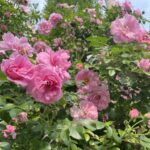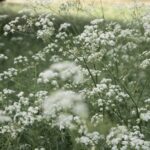Today I’ll take you on a walk along the beautiful lands of love, and the way we shape love through our hands, words and gestures throughout our life; the way we embody our purpose in ways we may not even realize the impact of; the way we give shape to God’s love through the songs we sing, the songs we’re sung, and the songs we make to move others along their own paths also.
There is a most beloved and beautiful story from my native land Bulgaria called “The Song of the Wheels” (Песента на колелетата). Published in 1925 and written by the prominent Bulgarian writer Yordan Yovkov, the story holds depth of spiritual meaning and symbolism.
Yordan Yovkov is very loved in our Bulgarian culture, and is best known for giving voice to those quieter parts of our country – the small villages and ethinic lives of their every day common people. To him, this was the heart of Bulgaria, and with his beautiful way of language he would bring to life the complexity of human emotions and nuances. Yovkov was amazing in his ability to capture the soul and essence of the native culture and distill it into something truly universal.
In the small tucked away villages in the mountains, he found the sacred intimacy of simple life and values, and the every day ordinary life in these places was was slow enough for him to distill the purity of it, the wisdom of it, and make it into the universal philosophy that touches one’s heart. His characters are often deeply romantic while living in a very real and grounded world. Truly, he writes for humanity, blending the spiritual and emotional inner wildlands with the every day of the physical, the human hands, the human gestures, the holding and the making.

The Song of the Wheels follows the life of an ethnic Turk man named Sali, who lives in a small village in Bulgaria. The story begins with him being a young but poor blacksmith, though he feels really happy and blessed because he has a beautiful caring wife and three wonderful children he loves, two sons and a daughter. Sali is extremely talented and gifted, and keeps working on mastering his craft daily with devotion and dedication.
He pours his heart and soul into his craft building horse drawn wagons. What makes the wagons unique is that Sali puts bells on the wheels, so when they move instead of knocking sounds the wheels make exquisite music; and each musical wagon he builds is unique too, because each one has its own song and melody. This is deeply meaningful because now all the people in the villages can recognize their loved ones coming home from war or distant travels.
Gradually Sali’s masterful skills are noticed by those around him, reaches farther villages, and he gathers fame and riches, with which he is able to buy his family a house and increase their livelihood and wellbeing. Everyone rejoices in the unique songs of wheels, and he rejoices also. Unfortunately though his wife and two sons pass away, which leaves Sali heartbroken. Eventually his daughter Shakire too leaves him as she marries a man from a far away village, and Sali is left home alone; his only comfort of friend and listening ear is his neighbour Japar, a man whom Sali’s daughter Shakire refused to marry because he was poor.
No matter how well his craft is still going, fame, riches and public opinions bring him no joy. Sali feels sad, hopeless and as if his life has no purpose and that he’s spent all his life without purpose or meaning. Harmony and joy seemed to have disappeared from his soul.
So each night he goes outside his house to sit on a bench, and reflect on his difficult fate, exchanging from time to time a word with the night watchman Japar. Japar understands Sali’s wounds in his soul, because Japar too is wounded, as he still burns with love for Sali’s daughter Shakire who refused to marry him.
In the hours of the evening reflections, Sali seeks to find a way to make a meaningful contribution with his money and goodwill in this life. He longs to do some great good in the world through which people will remember him, so that he will not be left with the bitter feeling of a life lived in emptiness. But no matter what plans he comes up with none of them seem good enough or grand enough.
He contemplates on building a beautiful fountain to be the source of water for many people and yet there is no suitable place for it to be built. The fountain should not be just another building – it must be located where people really need it. He then contemplates on building a well somewhere or a bridge or an inn where weary travellers can take refuge – but these plans too fall apart because it seems they will not be what the people nor travellers actually will need in the conditions and environment where the village is – it’d just sit there unused and unneeded; and what Sali truly desired in his heart is something people need, so that he can truly contribute to them not in way to make himself better or more seen but to really help them in the way they needed to be helped.
Eventually the mind turmoil and burdens and the strong winds from his nightly reflections on the bench caused Sali to fall seriously ill. Feeling afraid that this was the end of this road for him, he awaited in bed for his beloved daughter Shakire to come see him for the last time. Would she even come? Being stuck in his bed he could not even look for her.
Until one evening his heart sang with love and hope as his ears heard the unique song of her wheels! She is coming! This is her song, the unmistakable song of her approach, the one I made for her to know when she is coming back to me!
As the young woman entered the house she opened her mother’s chest and dressed herself to look like her mother. She then entered Sali’s room where he was half conscious, though his heart opened with joy from the song, and as Shakire sat beside him, she held his hand warmly and strongly, holding on holding strong; he looked at her and it’s if he saw his wife there now alive, because of the dress Shakire was wearing. The love was resurrected, the home was reborn, hope had returned, and Sali began healing and very soon after he was fully healed.
One evening, the night watchman Japar brought Sali the amazing news that one of their villagers, whom everyone thought was dead, had returned alive and well. Even from afar, his wife and children had recognized him by the sound of the wagon, the song of the wheels unique for him, and had run out to embrace him.
Japar told Sali how amazing these musical wagons are that he makes – because this is what people need, and this is what truly creates a difference for them – because it is through their sounds that people can recognize their loved ones when they are coming home.
Finally Sali realized. This clarity restored his sense of purpose, healed him and inspired him to get back to his work and create even more wheels and songs.
Sali finally understood – that he didn’t need another charity or project of impact, he was already doing his true calling, because his true calling are the musical wagons, the fruit of his work and talent. These wagons are what people need, and this clarity renewed him and gave him the clear insight that his life truly is purposeful.
And as a result of this regained harmony within, the old master’s life changed externally also. His daughter eventually became a widow and moved back to him, and soon after she fell in love with Japar, who had never stopped loving her; they married and lived happily with Sali also.
Everything fell into place and into a sound, a melody, in divine harmony. The last word with which the story “The Song of the Wheels” ends is consonance (съзвучие). On the one hand the consonance between human longings and efforts, and on the other – the consonance of the divine order governing the world.
It is difficult for us as human beings to realize our purpose sometimes. Sometimes we may almost imagine it as grand in the sky or on big stages in the world, and yet it is a bit more human than that – it is hands. It is through our every day lips, hands and seemingly ordinary gestures along the circling staircases of life that love is embodied, and that our purpose is shaped through us. It is in the way we touch another’s heart, the way we move kindness and patience of rhythm, the way we encourage another, hold another, raise each other and lift one another up. It is in a smile, a holding hand, a listening ear, a cooked meal for our family.
In the beginning of the tale we see the craft and labour of the blacksmith as a social action. He certainly had talent, and he harnesses the elements of nature to create something new, not present in nature. On the other hand however we see the craft as the soul’s longing and its path which includes the human experience of the nuances of complexity – of all emotions and sufferings and longings, dreams and hope and losses and then faith again. We see hope the through line of the narrative, we see how love returns us to love, then, now, always.
During the days he works on his craft, and during the nights he turns inward in the self reflections and his spiritual space. Yet these two worlds stayed kind of separate, day was day, and night was night; until he finally realized and married them into one – into one song, one melody, one harmony that was there all along anyway but he just needed to see it with the eyes of his heart.
And this is how it often is in life – our talents and efforts may not even be realized by us; we rarely know what impact we make to another until the other actually tells us. Many of us don’t even know our talents until someone points them out to us. Perhaps you are a great writer who moves people’s hearts, and yet you don’t know you do – you can only know of this if someone tells you. This is why it is so important for us to express and share when another has done something that has helped us. We are all here to reflect to one another our good and kind and meaningful, to support one another, lift each other, raise each other. Don’t ever hesitate to tell someone you appreciate them and how they have helped you – this matters.
Sali’s epiphany is one of self understanding, and once he understands himself and comes into the inner harmony, he then knows the contribution he must make. Yovkov equates self knowledge and moral knowledge, and that self awareness is what can help us see the path ahead and the choices we must make. And what Sali learns is that he must do exactly what he has been doing all along already – make musical wagons.
Realizing this, he takes even greater care in his work and the melodies he creates, developing the harmonies and chords that the wagons produce. Often times, with self knowledge we too find art and purpose in the simplest of places, and with moral knowledge our life becomes art itself, and purpose itself unfolds in all of our movings and speeds, shapes and forms.
With clarity and calmness, Sali realized the meaning of his life and how he had served people all along, It is precisely this realization that the story’s finale speaks of:
“It was precisely these wooden wheels that Sali was about to test now on the wooden carriage he was making for Japar. Hammer in hand, he stopped before them and thought. Sali was indeed a sage, a wise man, he had seen a lot, he had experienced a lot, but one thing was clear to him: this world is full of sorrows and misfortunes, but still there is something that is good, that stands above everything else – love between people. Japar would be coming back with that carriage and Shakire would be waiting for him. She must sing! And Sali began to tap the wooden wheels with the hammer, listening, paying attention, catching every sound, checking every consonance…”
The song of wheels is the song of divine harmony – the song that is made by our human hands and the love and intention we pour into it. This song restores harmony to the world and turns life from unhappiness to happiness. He gives hope to people, he realized that his legacy is the gift he’ll leave to all these people and to his beloved daughter also – because he knows she’ll always he able to hear her husband when he nears coming home to her. It’s a soothing of heart Sali gives her as his legacy. It’s love he gives her.
This is what we all leave behind – our love, our songs, our hope; our songs made, our songs sung, our songs that moved others along their own ways in life.
For personal readings with me, you are welcome to browse through my Offerings.

For more of my writings, browse through my Art of Love.
If you wish to support me and my work, you may do so by sharing it or donate here. For personal readings with me, you may visit my Offerings.
Your support means so much to me! Thank you wholeheartedly!




